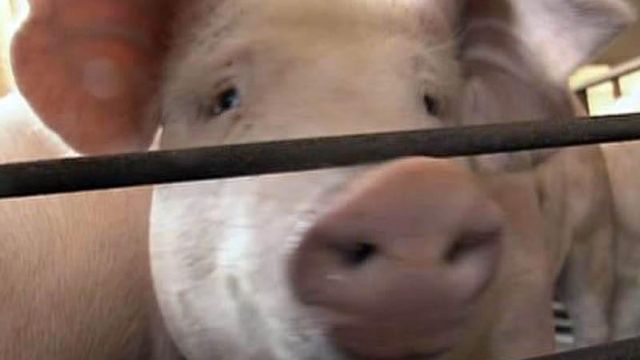N.C. pork producers no longer high on the hog
North Carolina is the second-largest pork producer in the nation, but four producers have declared bankruptcy in recent months.
Industry observers said the combination of shrinking demand, high feed prices and fears over swine flu have hammered the market and have left many farmers and their customers struggling to survive.
"We've lost probably an average of $24 (or) $25 on every hog we've sold over the last two years," said Curtis Barwick, land and environmental manager for pork producer Coharie Farms.
The company, which is owned by the daughter of former U.S. Sen. Lauch Faircloth, became the largest area pork producer to go under when it filed for bankruptcy protection three weeks ago. Bunting Swine in Edgecombe County and Coastal Plains Pork and Perfect Pig, both in Sampson County, also have declared bankruptcy.
Coharie Farms has been in business since 1972 and is among the 25 largest pork producers in the U.S., employing 165 and doing business with about 100 hog farmers.
"They’ll be some farmers who’ll have empty hog houses. It’ll be hard for them to feed their families and pay their taxes,” Barwick said.
“Every business in the community will feel its effect, whether you’re a bank, a car dealer, clothier, a grocery store, appliances – it really doesn’t matter,” said Don Butler, a Sampson County resident and president of the National Pork Processors Council.
Butler said the government's plan to buy $50 million in pork for federal programs like WIC, which provides food to low-income women who are expecting and to children under age 5, should offer a small boost to the industry.
"That, in and of itself, is not enough to turn everything around, but it will help bring the supply and demand equation back toward balance," he said.
Barwick said farmers might be able to find other companies to contract with, but that could be challenging.
“There’s just no interest in anyone picking up any sows and more production because we just have an oversupply of pork,” he said.
He called the H1N1 virus, which some people associated with eating pork because it also was referred to as "swine flu," was the last nail in the coffin for Coharie Farms. The company has laid off about a quarter of its work force already.
Area corn farmers complained recently that Coharie Farms owed them thousands of dollars for grain they supplied to feed the company's hogs, and Barwick said Monday that all farmers would be paid in full by January.











